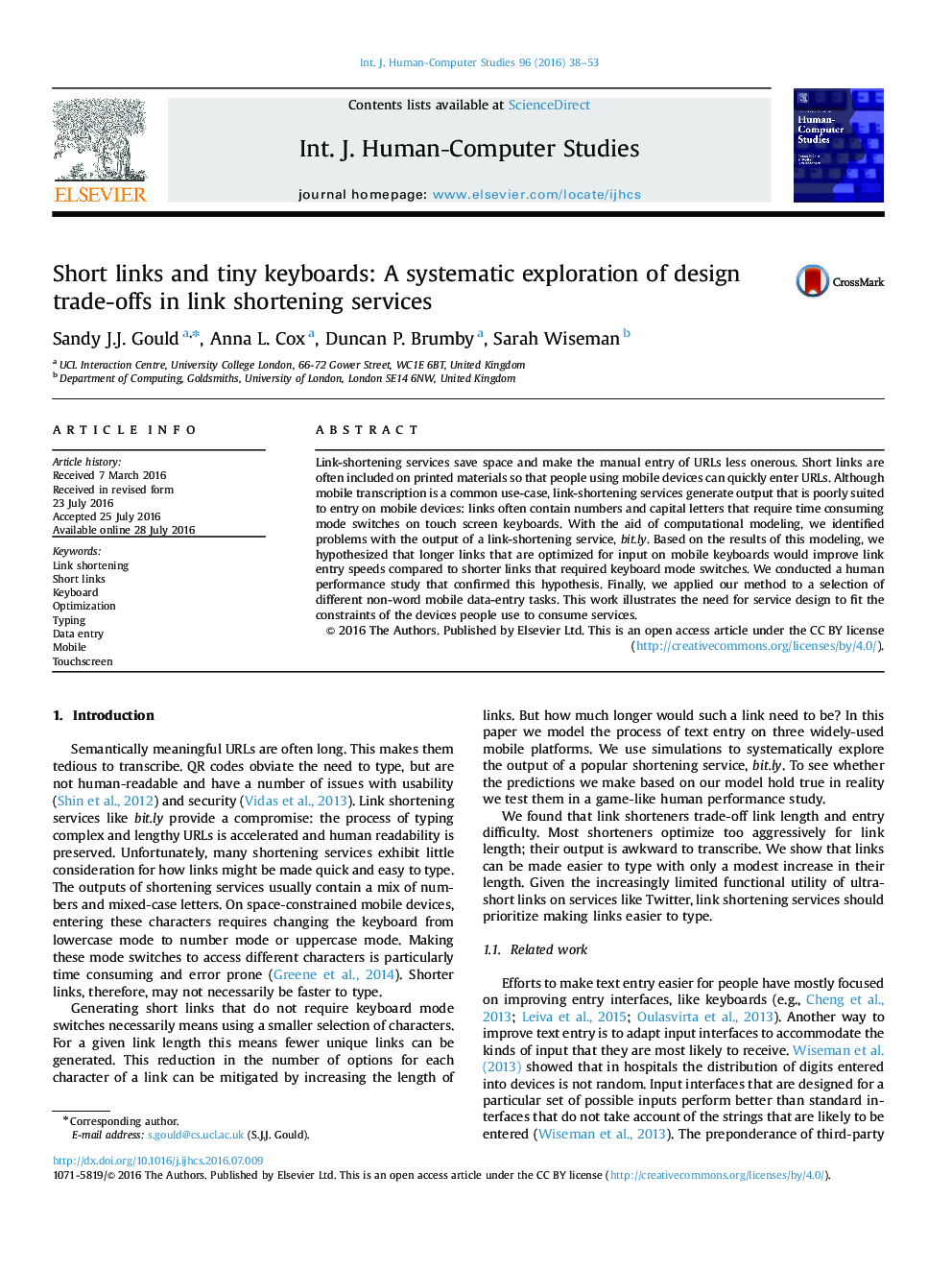| Article ID | Journal | Published Year | Pages | File Type |
|---|---|---|---|---|
| 6861008 | International Journal of Human-Computer Studies | 2016 | 16 Pages |
Abstract
Link-shortening services save space and make the manual entry of URLs less onerous. Short links are often included on printed materials so that people using mobile devices can quickly enter URLs. Although mobile transcription is a common use-case, link-shortening services generate output that is poorly suited to entry on mobile devices: links often contain numbers and capital letters that require time consuming mode switches on touch screen keyboards. With the aid of computational modeling, we identified problems with the output of a link-shortening service, bit.ly. Based on the results of this modeling, we hypothesized that longer links that are optimized for input on mobile keyboards would improve link entry speeds compared to shorter links that required keyboard mode switches. We conducted a human performance study that confirmed this hypothesis. Finally, we applied our method to a selection of different non-word mobile data-entry tasks. This work illustrates the need for service design to fit the constraints of the devices people use to consume services.
Related Topics
Physical Sciences and Engineering
Computer Science
Artificial Intelligence
Authors
Sandy J.J. Gould, Anna L. Cox, Duncan P. Brumby, Sarah Wiseman,
